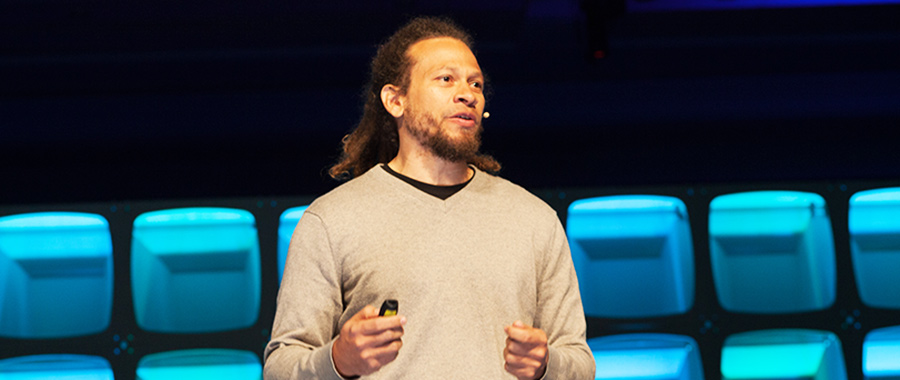The concept of racial justice within the context of mass incarceration in America engenders a crucial discourse within the Baha’i teachings. Central to Baha’i philosophy is the belief in the oneness of humanity, which inherently includes the call for equality and justice for all individuals, regardless of race. The systemic issues surrounding mass incarceration provide a stark contrast to these fundamental principles, demanding a holistic response from the Baha’i community and society at large.
At the heart of Baha’i teachings lies the affirmation that prejudices—whether based on race, class, gender, or other distinctions—are detrimental to progress and communal harmony. The mass incarceration phenomenon has disproportionately affected minority communities, particularly African Americans and Hispanics, revealing systemic inequities that contradict the tenet of universal brotherhood espoused in Baha’i writings. Addressing these injustices requires a multifaceted approach that encompasses justice, education, and advocacy.
1. Understanding Racial Justice through a Baha’i Lens
The Baha’i perspective on racial justice asserts that the eradication of prejudice is an essential pathway to achieving true societal cohesion. Baha’is hold that all humans share a divine origin and, therefore, merit equal treatment and opportunities. This ontological basis promotes a moral imperative: combating racial injustices, particularly those entrenched within legal and penal systems. It aligns closely with the Baha’i call for the establishment of a just and equitable world, wherein every individual’s dignity is safeguarded.
Baha’i teachings advance the notion that individual transcends group identity; however, collective experiences of marginalized identities necessitate an acknowledgment of historical grievances. A sincere commitment to racial justice involves confronting the legacies of slavery, segregation, and discrimination that continue to reverberate through society, particularly reflected in the policies that disproportionately impact communities of color.
2. The Alarming Statistics of Mass Incarceration
The United States has the highest incarceration rate in the world, with over 2 million individuals currently in prison. This stark reality reveals a criminal justice system that is characterized by bias, with confinement rates significantly skewed along racial lines. According to recent data, Black Americans are nearly six times more likely than white Americans to be incarcerated. Such statistics elucidate the systemic failures that perpetuate inequality, raising profound ethical questions that Baha’is and non-Baha’is alike must confront.
From a Baha’i standpoint, these rates are not merely numerical; they signify a moral crisis. The disproportionate effect of incarceration on people of color can be viewed through the Baha’i framework that emphasizes social justice, urging followers to take a stance against this dehumanization.
3. The Role of Education and Awareness
Education is paramount in the Baha’i approach to addressing racial injustices. An informed populace is crucial to dismantling the myths and stereotypes that underpin the criminalization of minority populations. Baha’is are encouraged to engage in dialogues about race and justice, promoting awareness of the factors that contribute to mass incarceration, such as socioeconomic disparities, lack of access to education, and systemic inequities in legal representation.
Moreover, teaching the Baha’i principles of unity and equity can foster an environment where healing and reconciliation are prioritized over retribution and division. Community programs aimed at fostering understanding between diverse racial groups can be instrumental in this endeavor. Such initiatives can galvanize communal action and align with the Baha’i teachings that emphasize the importance of collective efforts in addressing societal issues.
4. Advocacy and Community Engagement
Baha’is are encouraged to actively participate in advocacy efforts aimed at reforming justice systems. This can be operationalized through grassroots activism, lobbying for policy changes, and supporting organizations that fight for the rights of incarcerated individuals. The Baha’i principle of service underscores the importance of contributing to societal betterment, urging individuals to engage with the pressing realities of their communities.
Moreover, fostering relationships with existing social justice organizations allows Baha’is to integrate their philosophy with practical actions. By standing in solidarity with marginalized communities, Baha’is can reinforce their commitment to racial justice while amplifying the voices of those historically silenced by the justice system.
5. Promoting Restorative Justice
Another critical aspect of Baha’i teachings in addressing mass incarceration is the promotion of restorative justice—an approach that emphasizes healing over punishment. Unlike retributive justice, which often perpetuates cycles of harm and disenfranchisement, restorative practices seek to repair relationships and reintegrate individuals into society. Baha’is believe in the transformative power of repentance, forgiveness, and reintegration, aligning with the wider pursuit of racial justice.
Implementing restorative justice practices can alleviate issues stemming from mass incarceration by focusing on rehabilitation rather than mere punishment. This paradigm shift is essential for addressing the underlying issues that lead to criminal behavior—including poverty, lack of access to education, and systemic marginalization.
6. A Call to Action: Baha’i Involvement in Social Justice
The urgency of addressing racial injustices and mass incarceration is clear. Baha’is are called not only to acknowledge these issues but to take proactive measures to combat them. This involves a commitment to social action, educating oneself and others about these critical themes, and actively participating in community efforts aimed at reforming the justice system.
In conclusion, the Baha’i teachings offer a profound framework for addressing racial justice and mass incarceration in America. By advocating for equality, promoting education, and engaging in community service, Baha’is can help forge a path towards a more just and equitable society for all individuals. As humanity grapples with these pressing issues, the principles of love, unity, and justice inherent in the Baha’i faith can serve as guiding beacons—illuminating the path toward transformation and healing.
